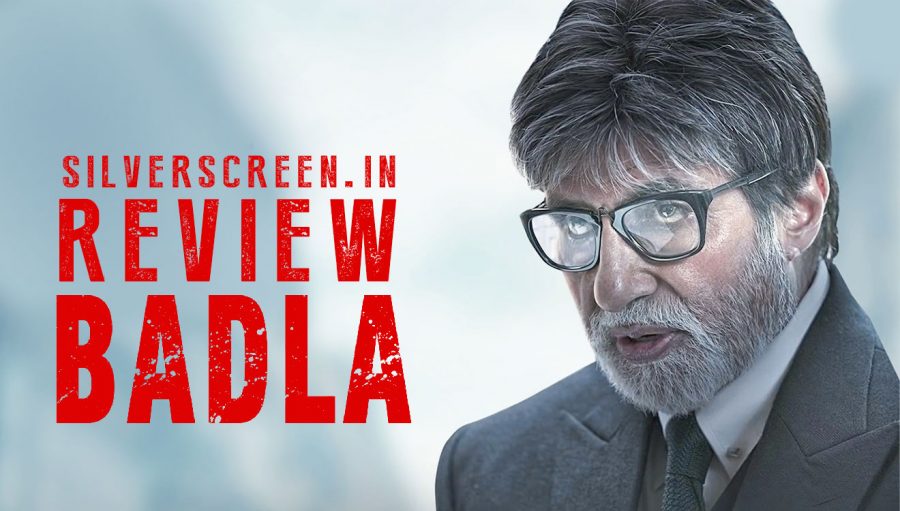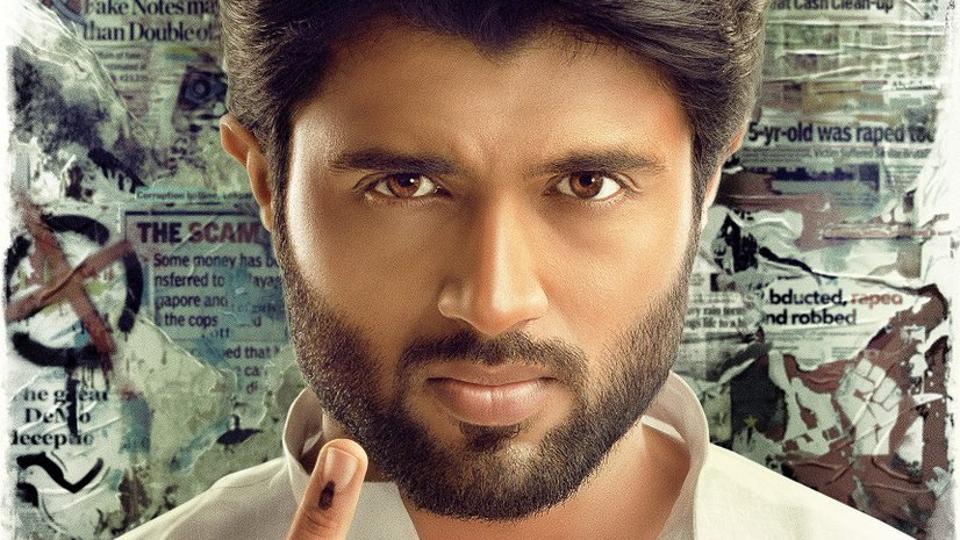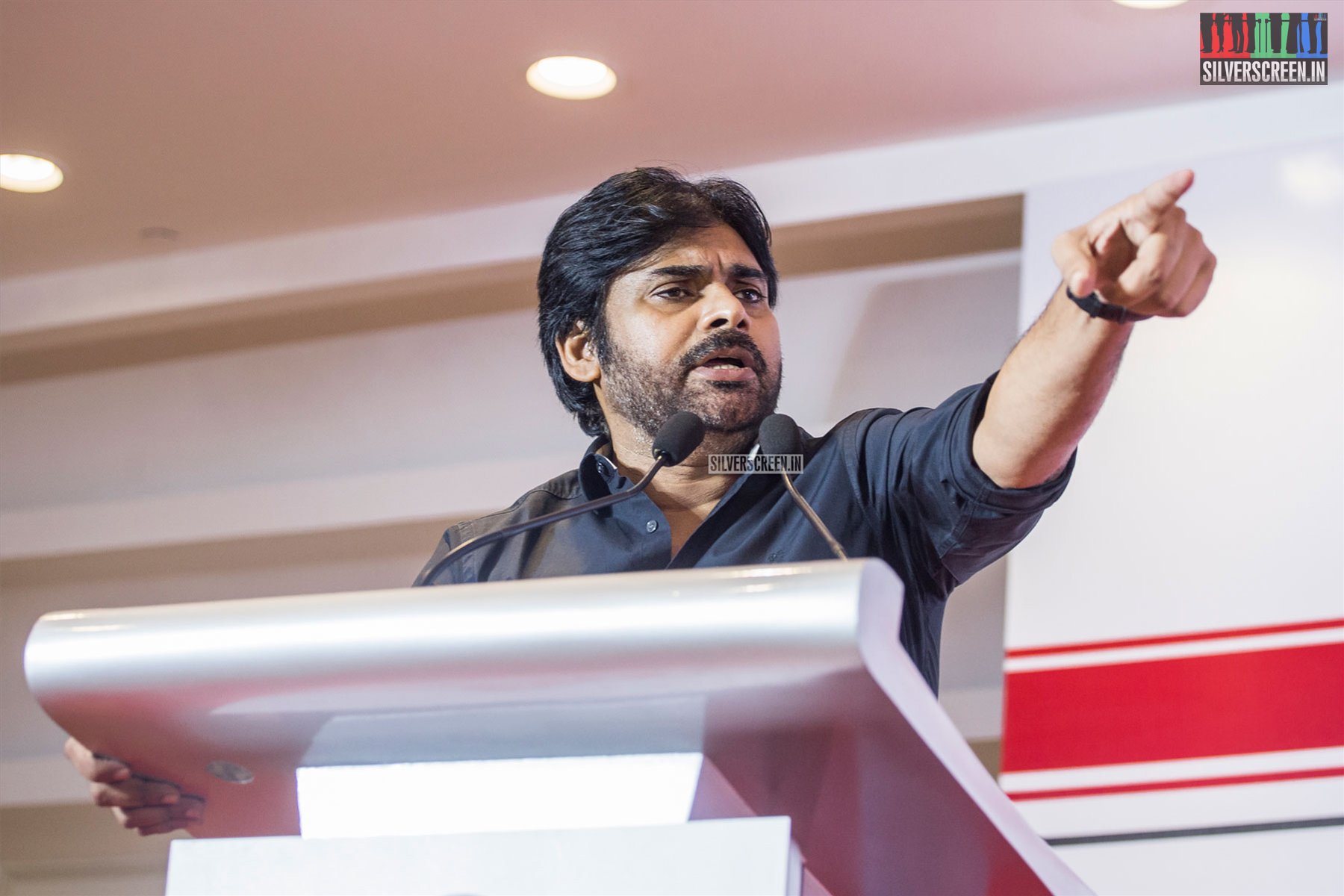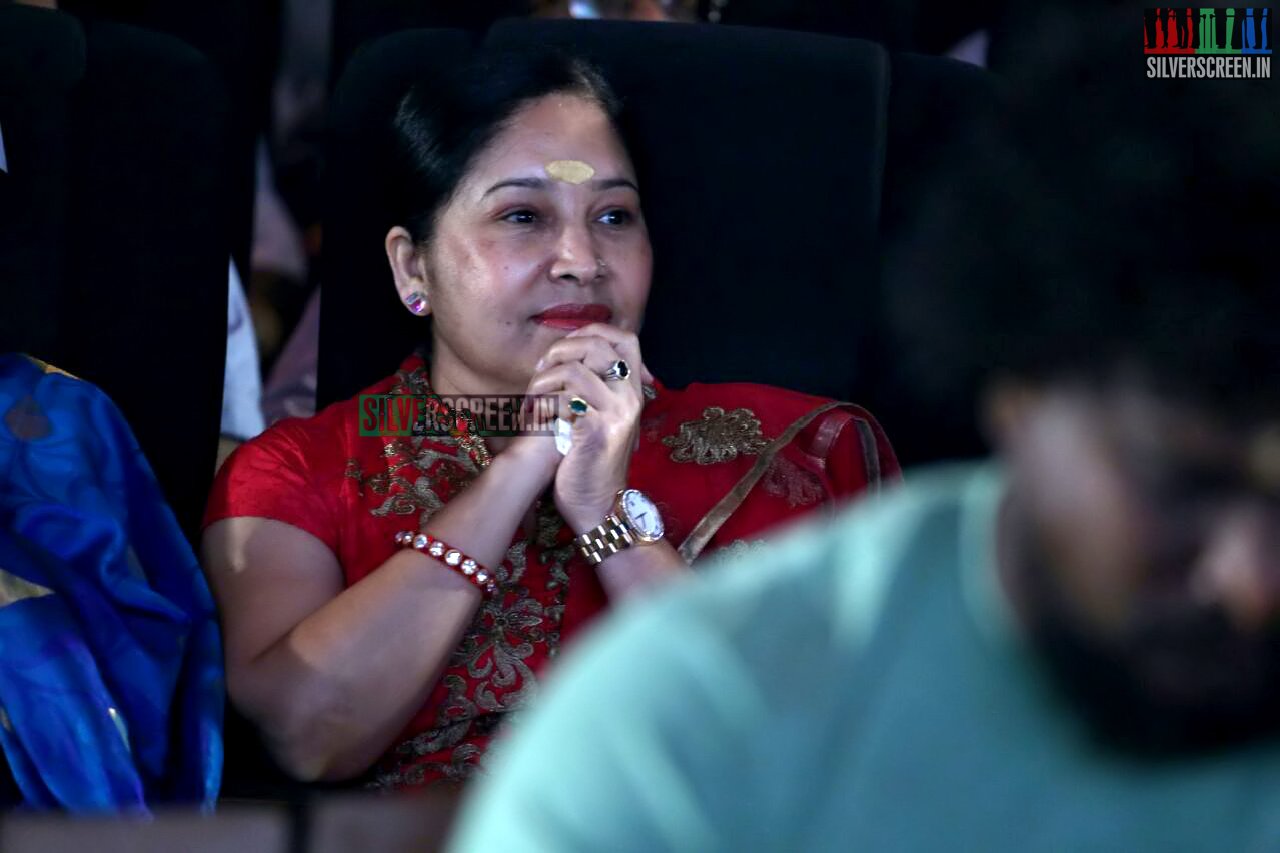Director: Sujay Ghosh
Cast: Taapsee Pannu, Amitabh Bachchan
*Contains spoilers*
Sujay Ghosh’s Badla (Revenge) is centered on a murder case. Naina (Taapsee Pannu), a highly successful business woman, is found in a hotel room in Glasgow with the body of a photographer (Tony Luke as Arjun). She is immediately taken into police custody. The situation is especially complicated since Arjun is her extramarital lover. Naina loses her husband and daughter, and the business empire she had built is about to crumble. To get out of the situation, she hires a celebrated lawyer, Badal Gupta (Amitabh Bachchan), whose three-hour long meeting with her (where they discuss the case details) anchors the film.
Kahaani, the film that made Sujay Ghosh’s career, had a smart narrative structure that kept the audience guessing till the climactic showdown. While everyone focused on the events in front of them, the truth unfolded somewhere in the background. Badla, an official adaptation of Invisible Guest, an acclaimed Spanish thriller directed by Oriol Paulo, attempts to do something similar. There are clues sprinkled over the narrative from head to toe, and the protagonists play a psychological cat and mouse chase to get information out of each other. The film labels the lead characters first, so that the audience never doubt their capacity – she is an award-winning young business person, and he is a lawyer who has never been defeated in the last 10 years. Naina, as we come to know soon, is an unreliable narrator who hides more secrets than what she chooses to reveal. All evidences are against her, and no one, including Badal, are ready to buy her claims that an unseen assailant murdered Arjun, hit her on the head, and vanished into thin air. Her alibi is marred with cracks that Badal pokes with his condescending smiles and a weak Mahabharata metaphor. It turns out that the silver-haired man, who came out of his retirement life to save Naina from the legal tangle, knows more about her than she’d thought.
The narrative crisscrosses between the present and several flashback sequences, spilling details of the short vacation of Arjun and Naina that went terribly wrong. The plot thickens soon as a second dead body, of another young Indian, and his aggrieved parents (an excellent Amrita Singh and Tanveer Ghani) come into the picture. Naina, who had carefully positioned herself as a victim in her version of the events, begins to transform into someone else. However, Badla doesn’t keep you on the edge. Plot twists here, are implausible and built on easy coincidences. The long convoluted thread of lies that Badal constructs to get the truth out of Naina never breaks, and that’s hard to buy.
The characterisations are rather sloppy, too cold to create any impact. Naina’s family life is portrayed in the most stereotypical shots, with her toddler in focus and happy parents in the background. You hardly feel for her when she is left alone to fight the case. The Glasgow setting too, hurts the film. In Kahaani and Teen, which were set in Kolkata, Ghosh was in his element, capturing the details of the vibrant city along with his characters. Here, deep-colored, mostly deserted woods and a posh but seemingly lifeless apartment, become the main locations of the film. There are little elements to hold your attention as the two actors indulge in long conversations, or call it interrogation, in that bland space.
Ghosh goes for a rather plain editing style, with minimum inserts or clever teasers, but lays the burden of holding the intrigue entirely on the actors’ shoulders. It isn’t a smart move. Bachchan has come to be an utterly predictable actor in roles where he has to play mind-games with his co-character. Pannu, who is usually a fine artiste to watch, is inadequate here. Even as Badal Gupta tells the audience how selfish and shrewd Naina is, you don’t see it as Pannu’s performance doesn’t let you see the high-contrast between Naina’s twin posturing. Surprisingly, it’s debut actor Tony Luke who delivers a more mature performance.
Recommended
Badla lacks that finesse that makes any movie memorable. It comes across as a hastily done remake that doesn’t make efforts neither to improve upon the Spanish original or connect to the local audience. For those who are familiar with how murder mysteries operate, the final reveal is unlikely to come across as ground-shaking as Ghosh hopes it to be. The many clues and instances of foreshadowing the film tosses at the audience never quite work, thanks to mindless writing that underestimates the audience. For one, the film uses an elaborate sequence to tease you with the possibility of a passerby – a nameless white actor who holds no stake in this business – being the real murderer. Haven’t we gone down this street several times before?
*****
The Badla review is a Silverscreen original article. It was not paid for or commissioned by anyone associated with the movie. Silverscreen.in and its writers do not have any commercial relationship with movies that are reviewed on the site.



